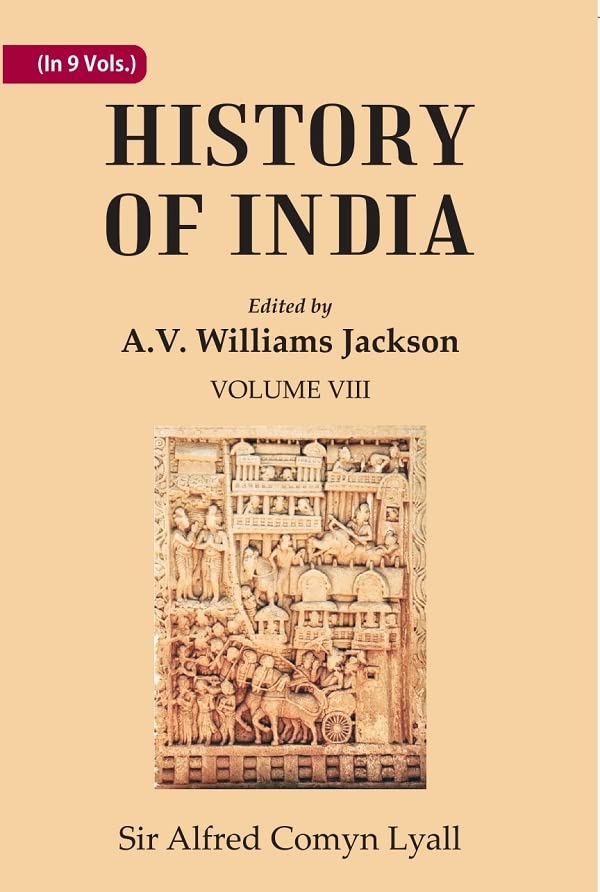History of India: From the close of the seventeenth century to the present time VOL 8TH - HARDCOVER
History of India: From the close of the seventeenth century to the present time VOL 8TH - HARDCOVER
Couldn't load pickup availability
About the Book : The aim of this series of volumes is to present a continuous narrative of the history of India from the dim ages of the past down to the present time, combining into an organic whole a succession of standard works by recognized authorities, each a master of the special period with which he deals, thus providing a complete picture of the development of the country. This series of volumes deal with the following topics, namely, Vol-1 From the Earliest Times to the Sixth Century, B. C., Vol-2 From the Sixth Century B.C. to the Mohammedan Conquest, Including the Invasion of Alexander the Great, Vol-3 Mediaeval India from the Mohammedan Conquest to the reign of Akber the Great, Vol-4 From the Reign of Akbar the Great to the Fall of the Moghul Empire, Vol-5 The Mohammedan Period as Described by its Own Historians, Vol-6 From the first European Settlements to the Founding of the English East India Company, Vol-7- The European Struggle for Indian Supremacy in the Seventeenth Century, Vol-8- From the Close of the Seventeenth Century to the Present Time, Vol-9 Historic Accounts of India by Foreign Travellers Classic, Oriental, and Occidental. About The Author : Alfred Comyn Lyall GCIE, KCB, PC, FBA ( 1835 –1911) was a British civil servant, literary historian and poet. He was educated at Eton College. Lyall joined the Indian Civil Service in 1856, and served a long career in India. He landed at Calcutta in January 1856. After four months of training he was posted as an Assistant Magistrate at Bulandshahr in Doab, a part of the North-West Provinces. He was there when the Indian Rebellion of 1857 occurred: his house was burned down and he was nearly killed when fleeing as his horse was shot from under him. He joined the Khaki Risala of Volunteers, an irregular European cavalry unit. He helped "pacify" Bulandshahr. In May 1858 he was transferred to Shahjehanpur where he helped "restore order".
Share

